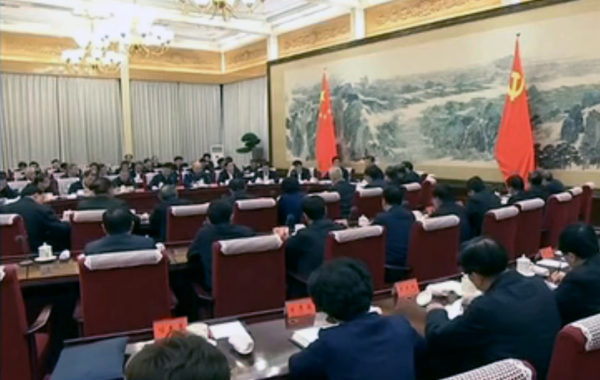◎ Xi created the Central Leading Group for Comprehensively Deepening Reforms after coming to office to bypass the Politburo Standing Committee system.
Official reports of the Central Leading Group for Comprehensively Deepening Reforms meeting on Nov. 20 reveal two noteworthy differences from previous meetings:
1. The addition of a prefix
- Instead of referring to the reform policy-making body as the “Central Leading Group for Comprehensively Deepening Reforms,” state media called it the “19th Central Leading Group for Comprehensively Deepening Reform.”
2. Senior leadership attendance irregularity
- Senior leaders present during earlier meetings include Xi Jinping (leading group leader), Li Keqiang (deputy leader), Liu Yunshan, Zhang Gaoli, Wang Yang, and Wang Huning. The Nov. 20 meeting was attended by Xi, Li, Zhang, Wang Yang, and Wang Huning; Liu was absent.
Our take:
1. Xi created the Central Leading Group for Comprehensively Deepening Reforms after coming to office to bypass the Politburo Standing Committee system. This represents a pragmatic solution for Xi to avoid being impeded by the Jiang Zemin faction members in the Standing Committee.
2. Jiang faction member Liu Yunshan appeared to be absent from the meeting because he recently stepped down from the Politburo Standing Committee. But Zhang Gaoli, another former Standing Committee and Jiang faction member, was in attendance.
3. If new Politburo Standing Committee member Wang Yang continues to be involved with the reform leading group after he becomes the new Chinese People’s Political Consultative Conference chairman at the Two Sessions (or even become the leading group’s deputy leader), this means that a new dynamic is in the works for this Standing Committee. Already, Wang Huning, another new Standing Committee member, won’t be running the Central Party School, which represents a departure from the norm. (See our Nov. 7 report.)












